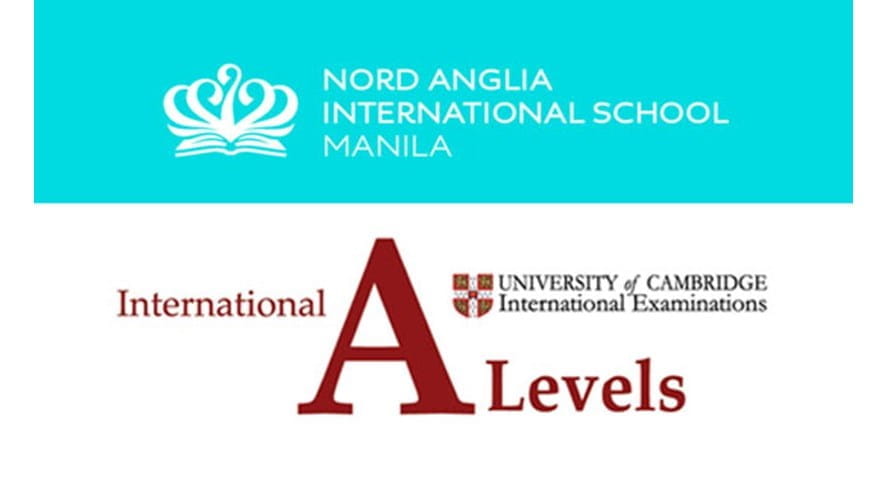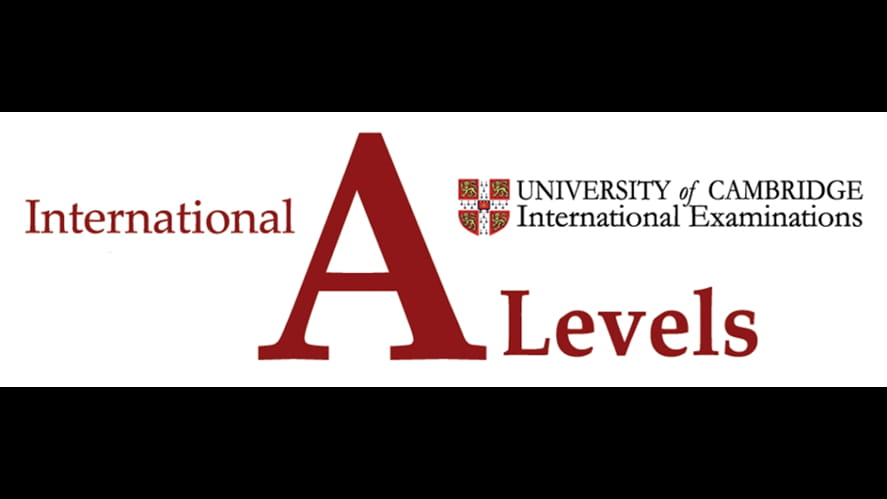We use cookies to improve your online experiences. To learn more and choose your cookies options, please refer to our cookie policy.

The NAIS Manila Secondary School is delighted to announce that a brand new Sixth Form (Key Stage 5) will be opening August 2020.
While a number of different study pathways will be available for students to follow, A-Level qualifications will be at the forefront of the qualifications being offered.
At NAIS Manila, a detailed A-Level Study Programme is being planned for that will focus on a personalised approach to A Levels so it plays to each individual’s strengths, which we believe is of vital importance when it comes to maximising our students’ chances of success.

Overview:
Cambridge International A Level and AS Level courses are one of the most rigorous and highly respected post-16 years old qualifications globally and are internationally recognized as a passport to further education in university and employment.
The Cambridge International A Level is a traditional route for students wishing to progress to the world’s major English-speaking universities.
The Cambridge A Levels programme is a two-year course, with the AS Level programme being typically one year. Many Cambridge International AS Level subjects extend into to the A Level program.
Students typically undertake four AS Level subjects in year one of their A Levels journey, this then narrows to three subjects in the second year, allowing for subject specialism and an acute understanding of the content and skills (see example below).
The A Levels course is undertaken by more the 175,000 learners in more than 125 countries every year and is designed to impart:
The Cambridge International syllabuses are international in scope but allow for students to explore local and regional issues, while developing a truly global mindset.
See below image for example of A Levels Journey.
Grading:
Each AS and A Levels subject is graded individually and receives a separate grade marked on the A (A* at A Levels) to E grading scale the same as the Cambridge International IGCSE programme, with A/A* being the highest.
International Recognition:
The A Levels programme is internationally recognized and the grading is easily transferable worldwide for entrance into leading universities in countries such as the UK, USA, Canada, Australia, New Zealand, Singapore, India, Malaysia, South Africa, Germany, Spain, Ireland and here in the Philippines as well as many other countries throughout Asia and Europe.
Difference Between A Levels and IB:
The A Levels and IB programmes share many similarities and are both rigorous and well respected qualifications. The primary difference between the A Levels and IB is that the A Levels focus on subject specialization and content expertise while the IB is significantly broader in scope.
The A Levels are often referred to the ‘Gold Standard’ in post-16-year-old education.
In the IB students undertake six subjects, three at ‘standard level’ and three at ‘higher level’. A Levels students undertake four subjects in year one of the course and narrow this to three in the second year to allow for deeper learning and subject knowledge.
The other primary difference is IB students undertake the subjects of TOK (Theory of Knowledge), CAS (Creativity, Action, Service) programme and EE (Extended Essay).
At NAIS Manila, A Level students undertake the Cambridge International IPQ (Individual Project Qualification - see below) in lieu of TOK and the EE and undertake community service and action as part of their NAIS Manila journey and through the schools ‘Be Ambitious – Be Better’ programme.
Below image shows Difference Between A Levels and IB:
The Whole Learner – The CIE IPQ:
Though the focus of the Cambridge International A Levels is subject specialization and deep subject knowledge, it is important that students develop the skills of research, inquiry, creativity and independent thinking and learning.
The Cambridge
Learners complete a 5000-word research project on a topic of their own choice. They can choose a subject to complement one of their Cambridge International AS or A Levels, or a topic that they are passionate about. They devise and develop a research question, conduct research to answer this question, record their progress in a research log and write a research report.
For more information on our International A Levels Programme, you may email:
Mr. Simon Sherratt - Head of Secondary
simon.sherratt@naismanila.edu.ph
Mr. Samuel Gipson - Deputy Head of Secondary
samuel.gipson@naismanila.edu.ph